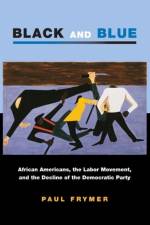- Race, Class, and the Soul of the Nation
von Jennifer L. Hochschild
50,00 €
The ideology of the American dream--the faith that an individual can attain success and virtue through strenuous effort--is the very soul of the American nation. According to Jennifer Hochschild, we have failed to face up to what that dream requires of our society, and yet we possess no other central belief that can save the United States from chaos. In this compassionate but frightening book, Hochschild attributes our national distress to the ways in which whites and African Americans have come to view their own and each other's opportunities. By examining the hopes and fears of whites and especially of blacks of various social classes, Hochschild demonstrates that America's only unifying vision may soon vanish in the face of racial conflict and discontent. Hochschild combines survey data and vivid anecdote to clarify several paradoxes. Since the 1960s white Americans have seen African Americans as having better and better chances to achieve the dream. At the same time middle-class blacks, by now one-third of the African American population, have become increasingly frustrated personally and anxious about the progress of their race. Most poor blacks, however, cling with astonishing strength to the notion that they and their families can succeed--despite their terrible, perhaps worsening, living conditions. Meanwhile, a tiny number of the estranged poor, who have completely given up on the American dream or any other faith, threaten the social fabric of the black community and the very lives of their fellow blacks. Hochschild probes these patterns and gives them historical depth by comparing the experience of today's African Americans to that of white ethnic immigrants at the turn of the century. She concludes by claiming that America's only alternative to the social disaster of intensified racial conflict lies in the inclusiveness, optimism, discipline, and high-mindedness of the American dream at its best.






























